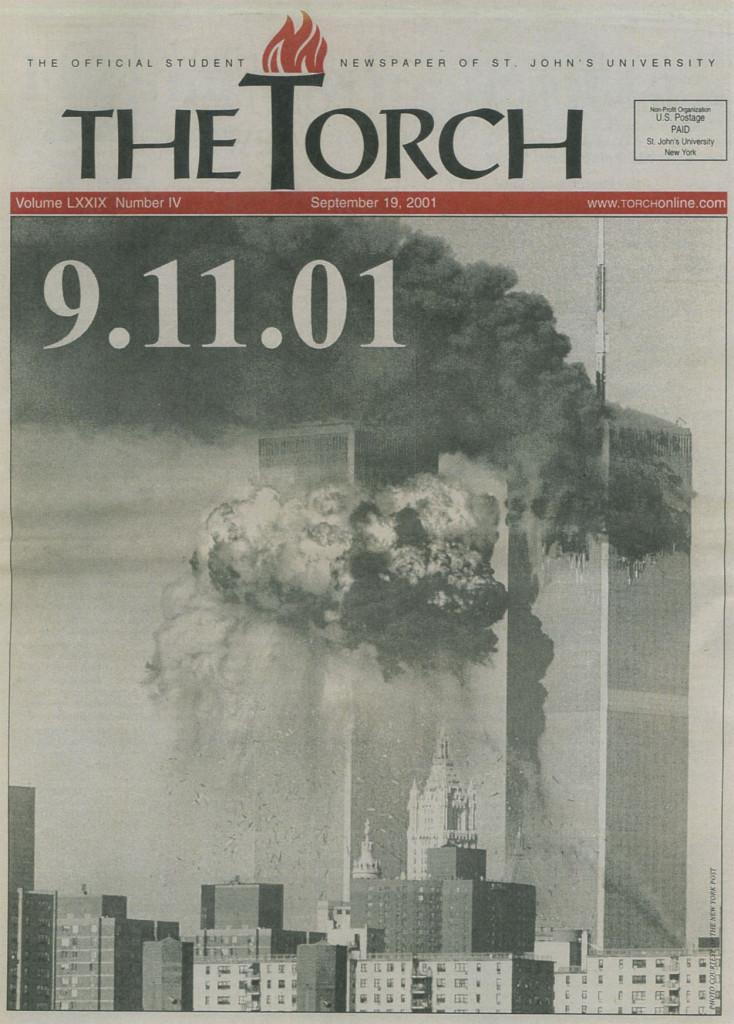Whenever we turn our gaze toward New York’s iconic skyline today, we are brutally reminded that it is not the city that it was 11 years ago. In 2001, as
I stood on top of the “Twin Towers” that would come down just one month later, I, much like the rest of the world, had no idea of the tragedy that would befall New York City that fateful September morning. It is an event that not only holds special meaning for myself and many other British people, but one that has drastically reshaped the world that we live in today.
When I had visited New York in 2001, I was just nine years old, and yet the scale of the city was even more mind-blowing than it is to me today. The drive from John F. Kennedy Airport granted me a beautiful panoramic view of the city
across the East River, and a skyline dominated by the World Trade Center complex. As I look upon the city today, it is still the lively global center that I remember, but there is certainly an unmistakable sense of sadness and melancholy in Lower Manhattan, an area that I remember as being nothing but vivacious and full of life upon my last visit.
When we reflect upon the significance of 9/11, it is important for us all to remember that it is an event that has impacted foreign lands far from America’s coastal borders. In the UK, and even the rest of Europe, media coverage of the event was just as intense as that which you would have found on NBC or CNN. The horror of the event depicted as if it could have been anywhere, and happened to anyone in the world. The 7/7 bombings in my hometown of London in 2005 only served to reinforce the universal threat that terrorism poses, and the dynamism of the global media in reporting of events.
Coverage of the event in the world’s media was reasonably uniform, with popular consensus dictating that on Sept. 11, 2001, the normal rules of
journalism ceased to apply. Gone was the empiricism and objective writing that newspapers such as the Times of London and Guardian prided themselves on practicing.
For one day only, the world’s most notable media outlets experienced what has been called the “death of detachment,” a shift from the aforementioned archetype of what may be called “proper journalism” in some circles, and into a style which propagated the idea that everyone had a story to tell, or an individual perspective to give. Occasions that can impact upon the broadcasting of information to this extent and in this manner are rare, but 9/11 is; without a doubt, one of those events.
Culturally, politically, socially and economically, the impact that 9/11 had upon the world is stark and sobering both now and with the benefit of hindsight. The negative fallout is well-documented, but the positive reaction to the event is perhaps more difficult to articulate. All that can be said is that the ability of New York to absorb such an attack and come out on the other side even stronger is a true reflection of the strength of the city and its people; and kudos must go to them for that.
The sense of returning for the first time 11 years after the event, however, gives me a somewhat unique perspective on the issue. Rather than experiencing the gradual progression from grief to reconstruction that most New Yorkers have, I come back with a very real sense of stark contrast between 2001 and 2012.
New York City is a different place from the one that I visited all those years ago, and from the one that I saw on the TV screen on 9/11. To say that it is a lesser city though could not be further from the truth. Even 11 years after, New York Citystands as proudly as it ever has as
one of the world’s foremost cities, and for an Englishman who had what felt like a front row seat to one of the most notable atrocities in American history, that is incredibly heartening to see.
Harry Saunders is an international student from London, England.








